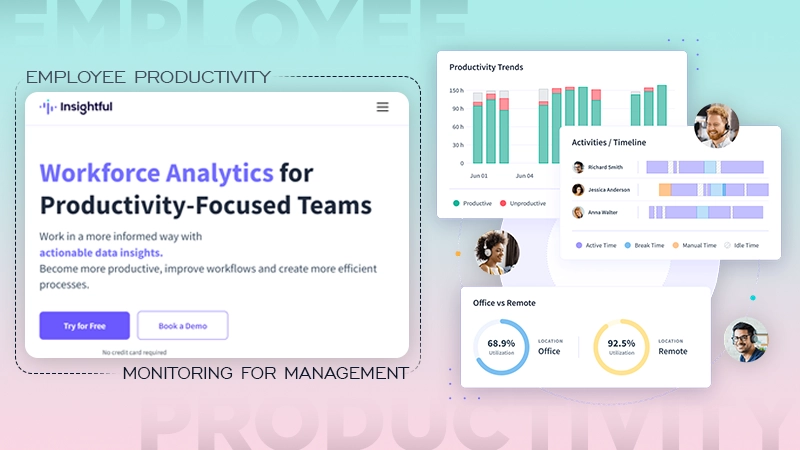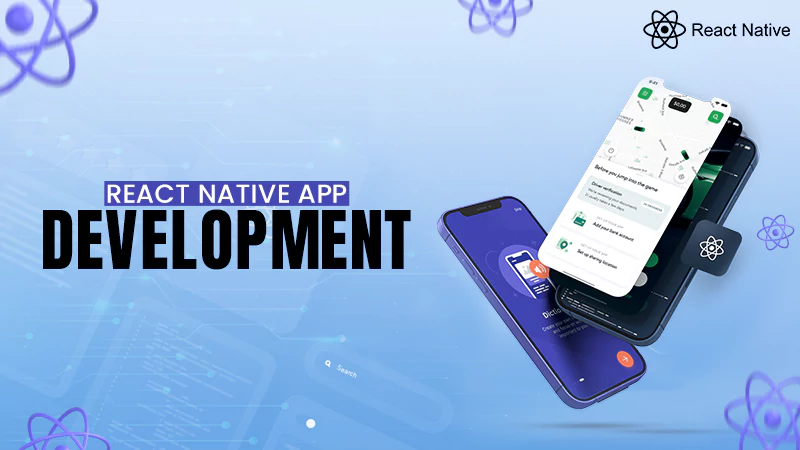How to Enhance Customer Experiences and Operational Efficiency with Intelligent Automation in Contact Centers
Contact centers are continually adapting to meet the ever-changing expectations of consumers. The quest to make workflows more efficient has been a persistent goal, and as consumer expectations shift, the need for enhanced and updated call centers becomes increasingly vital.
Today’s businesses recognize that delivering exceptional customer service requires more than just the right employees—it demands a strategic investment in advanced technology.
One of the key innovations transforming the client support landscape is intelligent automation. This introduction of artificial intelligence (AI) and computerization tools is revolutionizing the way companies operate, streamline client information, reduce expenses, and get valuable insights.
Streamlining the Customer Journey
The foundation of exceptional user experiences starts from the first impression. Clients expect a seamless experience the moment they initiate interaction, be it a phone call, website chat, or a mobile app message.
Intelligent mechanization plays a pivotal role in meeting the consumer’s expectations.
AI-enhanced Interactive Voice Response (IVR) systems, equipped with Natural Language Processing (NLP), guide users directly to the assistance they need. This eliminates the need for clients to search through complex menus, making the process easier.
For instance, when a caller speaks freely, the system analyses the sentiment and previous interaction history and efficiently transfers the call to the most suitable destination, be it a human agent or a self-service option.
Moreover, mechanization can seamlessly interpret the caller’s intention, providing the answering agent with relevant information before the conversation even begins.
It improves the problem-solving aspect and reduces call transfers and missed business opportunities.
Providing Exceptional Agent Assistance
Contrary to the fear of artificial intelligence replacing human representatives, automatic technology is designed to empower human capabilities. Virtual assistants powered by AI offer real-time information to representatives, aiding in problem identification and personalized user experience.
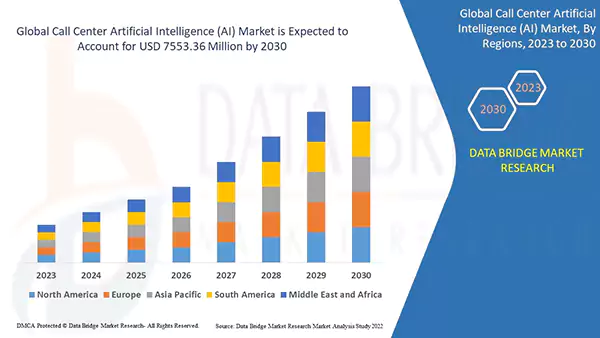
The above graph shows the expected market growth of AI- AI-integrated call Centers by 2030.
These virtual assistants provide access to various knowledge articles, scripted suggestions, and other data from the business’s backend, ensuring representatives have the required tools to interact with buyers.
The data automatically uploads to the preferred locations and Customer Relationship Management (CRM) systems during conversations, reducing the manual work for negotiators. It allows them to focus on more meaningful and complex purchaser interactions.
Building Self-Service Into the Contact Center
In a world where buyers are increasingly comfortable interacting with AI and chatbots, self-service solutions have become the foundation of the Customer Support Center. AI-driven chatbots leverage Natural Language Understanding, providing a built-in and attentive self-service experience.
Unlike traditional rule-based bots, the spokesperson gets to the root of the client’s queries, learning and adapting with each interaction, resulting in a human-like and customized experience. It reduces the instances of call transfer to representatives.
Martin Taylor, Co-Founder and Deputy CEO of Content Guru Inc. emphasizes the communal relationship between AI chatbots and agents, highlighting the role of automation. This process handles routine queries and reduces the need for humans.
Did You Know?
Chatbots may be the most visible use of artificial intelligence (AI) in the customer service process.
Bringing Intelligent Automation Into the Contact Center
Integrating conversational AI in contact centers goes beyond chatbots, involving advanced routing algorithms, real-time analytics, and insights into emerging trends and consumer choices.
Mechanization ensures buyers connect with the representative quickly, leading to faster resolution times and increased first-customer resolution. A data-driven approach allows for optimization and process refinement for a superior user experience.
Large language models (LLMs) have given rise to AI, providing fluent explanations to the representatives during interactions. This technology instantly presents solutions within the agent interface, drawing on the company’s trusted data sources.
Automatic technology leverages Natural Language Processing (NLP) to gather consumer information and delivers outcomes like live knowledge articles, automated post-call notes, or call scoring. This integration offers personalized services and increases the efficiency of the support systems.
Contact Center AI
Intelligent automation tools revolutionize the client support landscape by streamlining consumer data, enhancing agent experiences, and delivering valuable business insights.
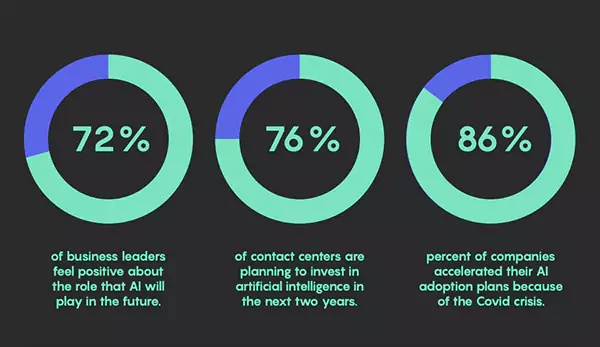
These tools not only ensure regulatory compliance but also open new areas for growth and client service excellence.
Key Benefits of Contact Center AI
- Reduced Call Volume with Self-Service Options: AI-powered self-service options empower purchasers to find answers independently, allowing the agents to focus on high-intent conversations.
- Improved Customer Experiences: It reduces wait times, enabling consistent delivery of personalized customer experiences. Virtual assistants and chatbots provide 24/7 support, enhancing clientele satisfaction.
- Lower Operational Expenditure (OPEX): Mechanization of routine inquiries by AI-powered chatbots reduces average inquiry handling times and labor costs. Voice calls are transferred to digital channels, reducing overall costs.
- Improved Agent Performance through Gamification: Integrating artificial intelligence into agent dashboards allows for real-time call analysis, fostering a culture of teamwork and continuous improvement.
Implementing Contact Center AI: Top Considerations
While the benefits of supporting these technologies are evident, successful implementation in omnichannel contact centers requires attention to key considerations:
- Data and Privacy: Adhere to data protection regulations like GDPR. Robust measures, including encryption and secure storage, are vital to maintaining customer trust.
- Integration with Existing Systems: Seamless integration with CRM platforms and advanced systems enhances customer insights, enabling personalized interactions.
- Agent Training and Transition: Comprehensive training programs ensure agents collaborate effectively with automatic systems, utilizing their capabilities for enhanced customer service.
Conclusion
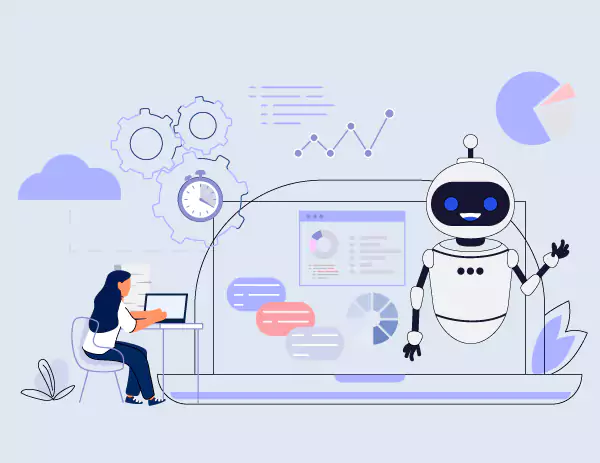
Computerization is reshaping support hubs, directing them toward unparalleled efficiency and customer satisfaction. Mechanized call hubs, with their multifaceted benefits, are a strategy vital for businesses looking to stay competitive in the evolving landscape of customer service.
As organizations embrace the power of AI, they are bound to unlock new growth opportunities, reduce costs, and deliver unparalleled customer experiences.
The journey toward the client support center of the future is marked by AI, where technology and human expertise collaborate to create a harmonious and efficient customer service ecosystem.


